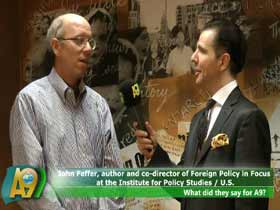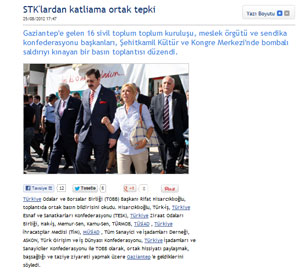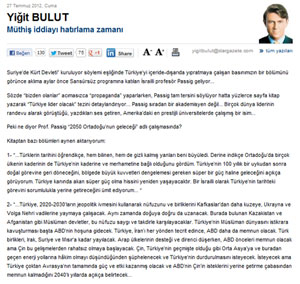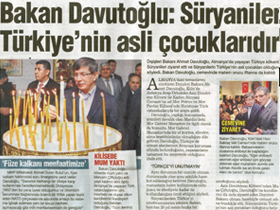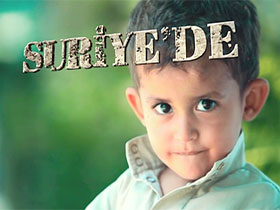Bigotry: The Dark Danger
Forthcoming elections, terrorism and Turkey
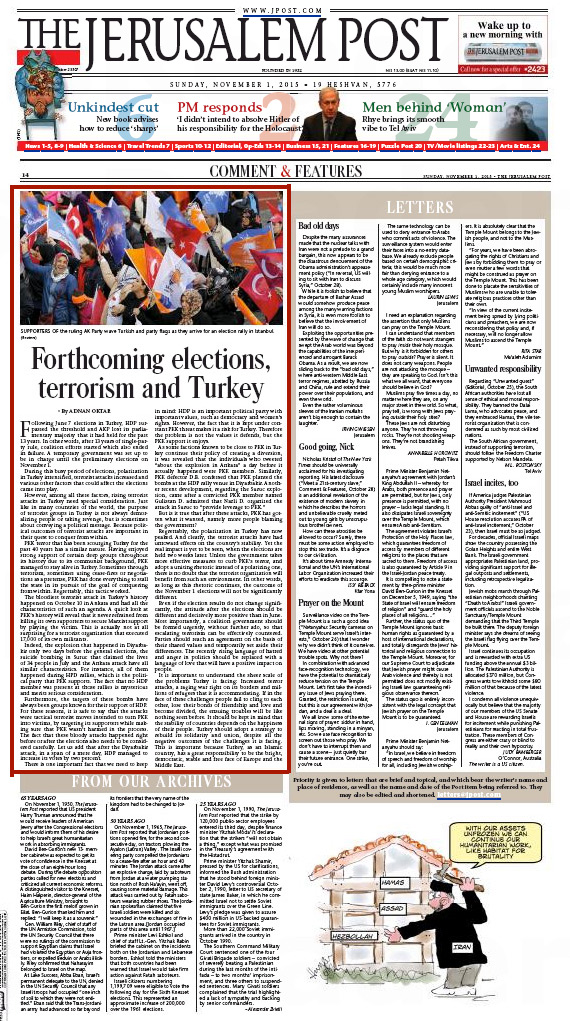
Following June 7 elections in Turkey, HDP surpassed the threshold and AKP lost its parliamentary majority that it had held for the past 13 years. In other words, after 13 years of single-party rule, coalition efforts started which also ended in failure. A temporary government was set up to be in charge until the preliminary elections on November 1.
During this busy period of elections, polarization in Turkey intensified, terrorist attacks increased and various other factors that could affect the elections came into play.
However, among all these factors, rising terrorist attacks in Turkey need special consideration. Just like in many countries of the world, the purpose of terrorist groups in Turkey is not always demoralizing people or taking revenge, but is sometimes about conveying a political message. Because political outcomes of terrorist attacks are important in their quest to conquer from within.
PKK terror that has been scourging Turkey for the past 40 years has a similar nature. Having enjoyed strong support of certain deep groups throughout its history due to its communist background, PKK managed to stay alive in Turkey. Sometimes through terrorism, sometimes using cease-fires or negotiations as a pretense, PKK has done everything to stall the state in its pursuit of the goal of conquering from within. Regrettably, this tactic worked.
The bloodiest terrorist attack in Turkey’s history happened on October 10 in Ankara and had all the characteristics of such an agenda. A quick look at PKK’s history will reveal that it never refrained from killing its own supporters to secure Marxist support by playing the victim. This is actually not at all surprising for a terrorist organization that executed 17,000 of its own militants.
Indeed, the explosion that happened in Diyarbakir only two days before the general elections, the suicide bombing in Suruc that claimed the lives of 34 people in July and the Ankara attack have all similar characteristics. For instance, all of them happened during HPD rallies, which is the political party that PKK supports. The fact that no HDP member was present at those rallies is mysterious and merits serious consideration.
Furthermore, the targets of these bombs have always been groups known for their support of HDP.
For these reasons, it is safe to say that the attacks were tactical terrorist moves intended to turn PKK into victims, by targeting its supporters while making sure that PKK wasn’t harmed in the process.
The fact that these bloody attacks happened right before or after the elections also needs to be considered carefully. Let us add that after the Diyarbakir attack, in a span of a mere day, HDP managed to increase its votes by two percent.
There is one important fact that we need to keep in mind: HDP is an important political party with important values, such as democracy and women’s rights. However, the fact that it is kept under constant PKK threat makes it a risk for Turkey. Therefore the problem is not the values it defends, but the PKK support it enjoys.
As some factions known to be close to PKK in Turkey continue their policy of creating a diversion, it was revealed that the individuals who tweeted “about the explosion in Ankara” a day before it actually happened were PKK members. Similarly, PKK defector D.B. confessed that PKK planted the bombs at the HDP rally venue in Diyarbakir. Another recent development, regarding the Suruc explosion, came after a convicted PKK member named Gulistan D. admitted that Nazli D. organized the attack in Suruc to “provide leverage to PKK.”
But is it true that after these attacks, PKK has gotten what it wanted, namely more people blaming the government? Regrettably, the polarization in Turkey has now peaked. And clearly, the terrorist attacks have had untoward effects on the country’s stability. Yet the real impact is yet to be seen, when the elections are held two weeks later. Unless the government takes more effective measures to curb PKK’s terror, and adopt a uniting rhetoric instead of a polarizing one, there is no doubt that the terrorist organization will benefit from such an environment. In other words, as long as this rhetoric continues, the outcome of the November 1 elections will not be significantly different.
Even if the election results do not change significantly, the attitude after the elections should be different and decisively more positive than in June.
Most importantly, a coalition government should be formed urgently, without further ado, so that escalating terrorism can be effectively countered.
Parties should reach an agreement on the basis of their shared values and temporarily set aside their differences. The recently rising language of hatred and anger in politics should be replaced with a language of love that will have a positive impact on people.
It is important to understand the sheer scale of the problems Turkey is facing: Increased terror attacks, a raging war right on its borders and millions of refugees that it is accommodating. If in the face of these challenges people fail to cling to each other, lose their bonds of friendship and love and become divided, the ensuing troubles will be like nothing seen before. It should be kept in mind that the stability of countries depends on the happiness of their people. Turkey should adopt a strategy to rebuild its solidarity and union, despite all the negative outcomes of the challenges it is facing.
This is important because Turkey, as an Islamic country, has a great responsibility to be the bright, democratic, stable and free face of Europe and the Middle East.
Adnan Oktar's piece on Jerusalem Post:
2015-11-02 01:42:54
